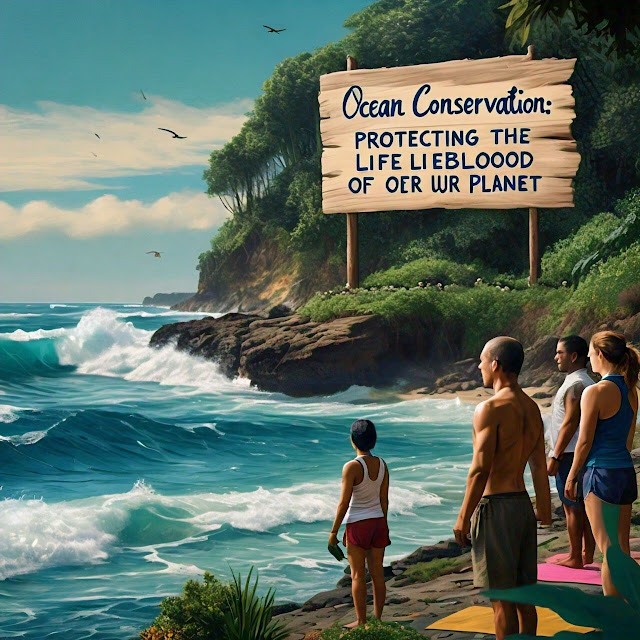The ocean covers over 70% of our planet, providing a vital source of food, oxygen, and livelihoods for billions of people around the world. However, the ocean's health is facing unprecedented threats from human activities, making ocean conservation a critical imperative for the future of our planet.
The Importance of Ocean Conservation
Oceans play a crucial role in regulating the Earth's climate, providing half of the oxygen we breathe, and serving as a primary source of food for billions of people. They also support a vast array of marine life, from tiny plankton to massive blue whales. Moreover, oceans help to moderate weather patterns, mitigate the effects of climate change, and provide countless recreational and economic opportunities.
Threats to Ocean Health
Despite their importance, oceans face numerous threats, including:
1. Overfishing: The depletion of fish populations and damage to marine ecosystems due to excessive fishing practices.
2. Pollution: The release of plastics, chemicals, and other pollutants into the ocean, harming marine life and contaminating the food chain.
3. Climate Change: Rising ocean temperatures, acidification, and sea-level rise, causing coral bleaching, sea-level rise, and altered marine ecosystems.
4. Habitat Destruction: The degradation of coastal ecosystems, such as coral reefs, mangroves, and seagrass beds, due to coastal development and pollution.
5. Marine Debris: The accumulation of plastic waste and other debris in the ocean, entangling and killing marine life.
Ocean Conservation Efforts
To address these threats, various initiatives and strategies have been implemented, including:
1. Marine Protected Areas (MPAs): Establishing protected zones to safeguard marine life and ecosystems.
2. Sustainable Fishing: Promoting responsible fishing practices and enforcing catch limits to prevent overfishing.
3. Reducing Plastic Pollution: Implementing policies and programs to minimize plastic waste and promote recycling.
4. Climate Action: Addressing climate change through international agreements, such as the Paris Agreement, and reducing greenhouse gas emissions.
5. Education and Awareness: Raising public awareness about ocean conservation and promoting individual actions to protect the ocean.
What You Can Do
Everyone can contribute to ocean conservation by:
1. Reducing plastic use: Avoid single-use plastics, recycle, and participate in beach cleanups.
2. Supporting sustainable seafood: Choose seafood from certified sustainable sources.
3. Conserving water: Reduce water waste and support water conservation efforts.
4. Supporting ocean conservation organizations: Donate to organizations dedicated to protecting the ocean.
5. Spreading awareness: Share knowledge and inspire others to take action for ocean conservation.
Conclusion
Ocean conservation is a critical imperative for the health of our planet and its inhabitants. By understanding the importance of ocean conservation, recognizing the threats to ocean health, and supporting conservation efforts, we can work together to protect the ocean and ensure a sustainable future for generations to come.


إرسال تعليق